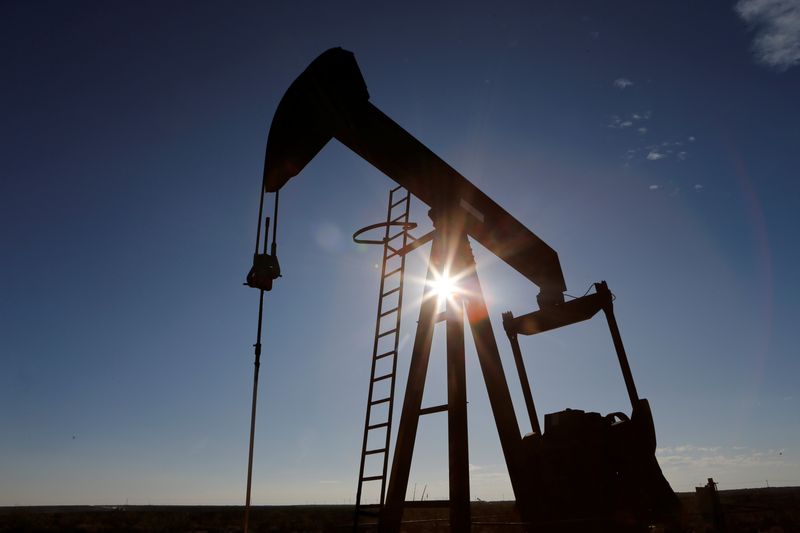Oil rises as intensifying Ukraine war increases supply risk
By Laila Kearney
(Reuters) - Oil prices rose on Friday after Russia said it had fired a ballistic missile at Ukraine and warned of a broadening conflict, raising the prospect of tightening crude supplies.
Brent crude futures gained 14 cents, or 0.2%, to $74.37 a barrel by 0007 GMT. U.S. West Texas Intermediate crude futures rose 17 cents, or 0.2%, to $70.27 per barrel.
Russian President Vladimir Putin said on Thursday that the Ukraine war was growing into a global conflict after the U.S. and Britain allowed Ukraine to strike Russia with their weapons.
Putin, who said Russia responded to the use of U.S. andBritish missiles by firing a new kind of hypersonic medium-rangeballistic missile at a Ukrainian military facility, warned the West that Moscow could retaliate further.
After approval from the administration of President JoeBiden, Ukraine struck Russia with six U.S.-made ATACMS on Nov.19 and with British Storm Shadow missiles and U.S.-made HIMARSon Nov. 21, Putin said.
Russia is among the world's top crude oil producing countries, even with output declines following import bans tied to its invasion of Ukraine and supply curbs by producer group OPEC+. Russia this month said it produced about 9 million barrels of oil a day.
Ukraine has used drones to target Russian oil infrastructure, including in June, when it used long-range attack drones to strike four Russian refineries.
Swelling U.S. crude and gasoline stocks limited price gains, with government data released this week showing crude rose by 545,000 barrels in the week to Nov. 15 to 430.3 million barrels and gasoline inventories by 2.1 million barrels to 208.9 million barrels.
Some analysts forecast another jump in oil inventories in next week's data.
"We will be expecting a rebound in production as well as US refinery activity next week that will carry negative implications for both crude and key products," said Jim Ritterbusch of Ritterbusch and Associates in Florida.
The world's top crude importer, China, meanwhile on Thursday announced policy measures to boost trade, including support for energy product imports, amid worries over U.S. President-elect Donald Trump's threats to impose tariffs.
Source: Investing.com
